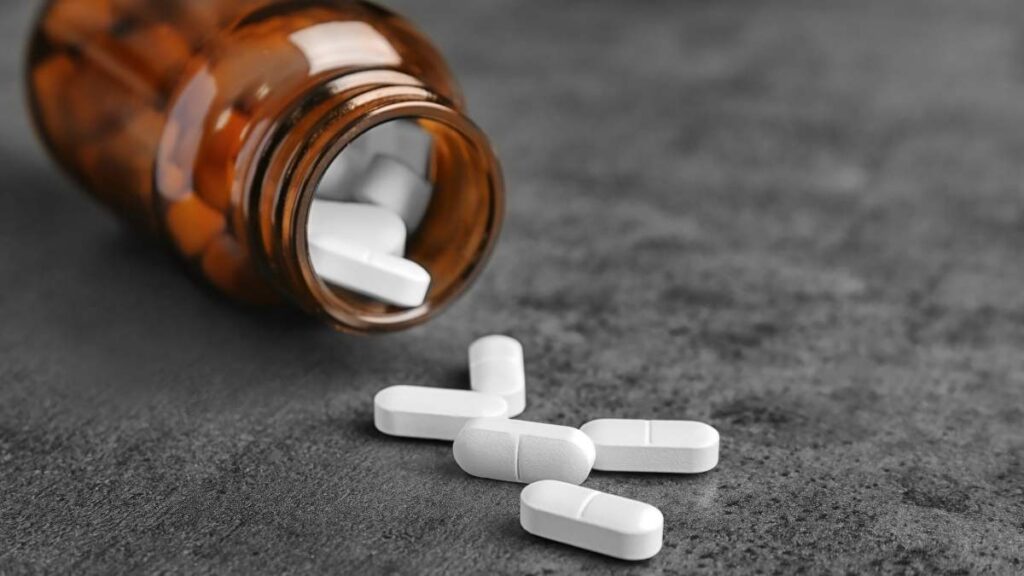At Detox Nashville, we are dedicated to helping our clients successfully navigate stimulant detox in Nashville. Our comprehensive program is tailored to support individuals detoxing from stimulants in Nashville, offering a safe and compassionate environment for recovery. Understanding the unique challenges of prescription stimulant detox, our team is dedicated to providing the best care possible.
What is Stimulant Addiction?
Stimulant addiction refers to the dependence on substances that increase activity in the brain and nervous system. These drugs are often used to enhance alertness, attention, and energy. However, their misuse can lead to serious health issues and addiction.
Types of Stimulant Drugs
- Prescription Stimulants: These include medications like Adderall and Ritalin, prescribed for conditions like ADHD. However, their high potential for abuse necessitates careful monitoring.
- Illegal Stimulants: Drugs like cocaine and methamphetamine are highly addictive and can rapidly lead to dependency.

The Scope of Stimulant Use Disorder
Stimulant use in the United States represents a significant public health issue, with a notable rise in both prescription and illicit stimulant consumption. Prescription drugs, such as Adderall and Ritalin, are commonly prescribed for conditions like Attention Deficit Hyperactivity Disorder (ADHD) and narcolepsy. However, they also have a high potential for misuse and addiction. Illicit stimulants, including cocaine and methamphetamine, remain prevalent, with their use contributing to a range of health and social problems.
The National Institute on Drug Abuse (NIDA) reports increasing rates of emergency department visits and overdose deaths from 2019 to 2021, with more than 32,537 drug overdose deaths involving stimulants reported in 2021. It indicates a growing concern in the healthcare community. The widespread use of stimulants has led to a greater need for effective intervention strategies. It includes professional drug treatment programs, like our stimulant detox in Nashville, to address the complexities of addiction.
What are the Signs and Symptoms of Stimulant Addiction?
Recognizing the signs and symptoms, especially for effective stimulant detox in Nashville, is crucial for early intervention and treatment. Here is a comprehensive list:
Physical Symptoms
- Increased Heart Rate and Blood Pressure: Stimulants cause a noticeable increase in heart rate and blood pressure.
- Reduced Appetite and Weight Loss: Significant decrease in appetite leading to weight loss.
- Insomnia: Difficulty in falling or staying asleep.
- Dilated Pupils: Noticeable enlargement of the pupils.
- Hyperactivity: Excessive energy and restlessness.
- Excessive Sweating: Unusual or excessive sweating even without physical exertion.
- Physical Exhaustion: Extreme tiredness following the stimulant’s effects wearing off.
- Dental Problems: Particularly with methamphetamine use, leading to “meth mouth.”
Behavioral Symptoms
- Increased Risk-Taking Behaviors: Engaging in risky activities without considering the consequences.
- Compulsive Drug-Seeking Behavior: Obsessive thoughts and actions focused on obtaining and using stimulants.
- Neglect of Responsibilities: Ignoring work, school, or family responsibilities.
- Social Withdrawal: Isolating from friends and family.
- Financial Problems: Spending excessive amounts of money on stimulants, leading to financial strain.
- Legal Issues: Encounters with law enforcement due to activities related to drug use.
Psychological Symptoms
- Mood Swings: Rapid and extreme changes in mood.
- Irritability and Aggression: Increased agitation and aggressive behavior.
- Anxiety and Paranoia: Intense feelings of nervousness or unjustified fearfulness.
- Hallucinations and Psychosis: In severe cases, experiencing hallucinations or a break from reality.
- Depression: Especially during withdrawal or when not using the drug.
- Concentration Problems: Difficulty focusing or remembering things.
It’s important to note that the presence of these symptoms can vary in intensity and combination, and not all individuals will exhibit all symptoms. If you or someone you know is showing signs of stimulant addiction, seeking professional help is a critical step towards recovery.

How does our Stimulant Detox in Nashville Work?
Detoxing from stimulants in Nashville at our detox center involves a comprehensive approach that addresses both physical and psychological aspects of addiction. The process typically includes:
- Evaluation: A thorough assessment to understand the extent of addiction and any co-occurring disorders, such as alcohol use.
- Stabilization: Assistance through the withdrawal phase with medical and emotional support.
- Preparation for Further Treatment: Guidance towards long-term recovery options, including therapy and support groups.
How is the Stimulant Withdrawal Timeline?
The timeline for stimulant withdrawal can vary based on the type of stimulant used, duration of use, and individual health factors. Generally, it follows this pattern:
- Initial Phase (1-3 days): Symptoms can include fatigue, depression, and sleep disturbances.
- Peak Phase (3-5 days): This is often when symptoms are most intense. Users may experience mood swings, irritability, and physical discomfort.
- Subsiding Phase (1-2 weeks): Symptoms gradually lessen but may include ongoing cravings and emotional instability.
What Medications Are Used for Stimulant Withdrawal?
A big benefit of receiving professional stimulant detox treatment involves the use of medications. Medical experts understand how to treat withdrawal symptoms that cause physical or emotional discomfort. When a person has a less difficult detox process, they are more likely to complete it.
Drug abuse often causes a person’s brain to become unable to naturally produce feel-good chemicals. The drugs make up for that by unnaturally creating them. Once a person stops abusing the drug, they become anxious or depressed. Antidepressants can be used to help treat feelings of depression, anxiety, and agitation. They act as a temporary way to produce these feelings while the brain learns to produce them naturally again. Antidepressants can also help with insomnia, allowing people to sleep better. Benzodiazepines also offer relief from anxiety and feelings of irritability.
Prescription drugs that address physical withdrawal symptoms also help make the detox process more bearable. Medications like Benadryl help many people relax and sleep better. Analgesic meds offer relief from headaches and body aches. Drugs like Provigil and Aripiprazole help ease withdrawal symptoms that often come with cocaine, amphetamine, and methamphetamine abuse.
How We Treat Stimulant Addiction in Nashville, TN
At Detox Nashville, we understand the complexity of stimulant addiction and the challenges of stimulant withdrawal. Our program is designed to provide:
- Medical Supervision: To ensure safety during the detox process.
- Counseling and Therapy: To address underlying issues and equip clients with coping strategies.
- Peer Support: Through group sessions and community building.
- Aftercare Planning: To support long-term recovery and prevent relapse.
Our Nashville Stimulant Detox Services
We offer a comprehensive range of services designed to support you during your stimulant detox in Nashville. Our services include:
- Medication-Assisted Treatment (MAT): MAT helps to safely detox with fewer withdrawal symptoms, aiding in relapse prevention and long-term sobriety.
- Holistic Therapy: It focuses on treating the whole person, including their spiritual, mental, and physical well-being, through various techniques like yoga and meditation.
- Intensive Outpatient Program (IOP): It allows individuals to receive the full benefits of addiction treatment while maintaining personal and professional commitments.
- Wound Care: Attention is given to caring for any substance abuse-related wounds, which is crucial for preventing serious health complications.
- Aftercare Services: It offers support after the detox process, addressing root-cause issues and providing ongoing assistance in recovery.
At Detox Nashville, we provide specific programs for different types of substance addiction, which is crucial for individuals struggling with addiction to substances like cocaine, methamphetamine, and prescription stimulants. In addition, our treatment plans ensure that each person receives the care and support necessary for effective recovery.

Get Help Now with our Stimulant Detox in Nashville, TN
Embarking on the journey to overcome stimulant addiction is a brave step. At Detox Nashville, we are committed to supporting you through every stage of your stimulant detox in Nashville. With our expert care and a supportive environment, we are here to help you reclaim your life from addiction. Contact us today to learn more and begin your journey of healing.